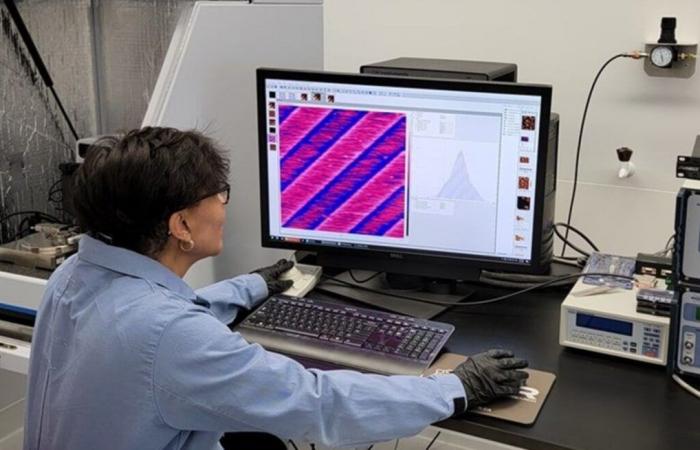This text is part of the Special Acfas Congress notebook
In the heart of laboratories around the province, Research teams Work to develop futuristic materials to provide sustainable solutions to current problems, especially in terms of environment.
What to do when we face an environmental problem for which the only solution exists in science fiction? We are developing new tools. This is what chemists, engineers and other researchers in the field of functional materials do, an unknown environment that concretely contributes to improving the resilience of our planet.
“The functional materials are designed according to the desired applications”, explains from the start of the Matteo Duca, director of development and scientific affairs at the Quebec center on functional materials (CQMF). “In the name, the word” functional “emphasizes the idea that the material exists to fulfill a desired function. »»
These materials are found in various fields, such as energy, aviation, health and even construction. The conference Functional materials for sustainable development which will be held on Wednesday May 7 as part of the ACFAS congress will focus on another area of application: the environment.
Rescue materials
“The three CQMF research areas each affect the UN sustainable development goals in their own way,” says Matteo Duca. Indeed, whether in health, energy or environment, university research for functional materials makes it possible to respond to concrete problems in our society.
This is what the various presentations on the conference program will confirm. They will also represent the great variety of research carried out in the field. “We will see presentations at all scales of technological development,” explains François Perrault, professor at the University of Quebec Department of Chemistry in Montreal and co -organizer of the event. “Some will be more exploratory, more fundamental while others will be close to the application. »»
-Indeed, research on functional materials can take several forms. “Sometimes we try to understand the properties of a material that allow certain functions, illustrates the researcher. Other research aims to optimize processes already in place. In other cases, researchers are working to find a second life for industrial activity residues.
This is the case of Claudiane Ouellet-Plamondon, professor in the Department of Construction Engineering at the School of Higher Technology and coorganizing the conference. “My presentation concerns the revaluation of bauxite residues from aluminum production,” she explains. We try to see what its absorption properties are, but as it is not a homogeneous material, we must adapt our processes. Although sharp, his research is directly part of the movement of the circular economy which is increasingly concerned about industries.
François Perreault, for his part, will support one of his students who develops a material capable of capturing lithium present in salt water. Its goal: to enhance the discharges of the global insealization industry while increasing the availability of this coveted material.
The future is chemical
For the two co -organizers, the objective of this conference – in addition to communicating the recent advances in research – is also to assert the importance of their field of research. “Not all problems of sustainable development are linked to technologies,” recalls François Perrault. Most are political. But some policies are limited by the ability of technology to do certain things. He cites as an example the technical progress that remains to be made to better degrade the pollutants present in the environment or treat wastewater.
His colleague Claudiane Ouel-Plamondon abounds. “We often talk about rare earths, critical materials, but what can we do with what is commonly accessible?” It recalls one of the principles of life cycle studies, which encourage us to question all stages of a process. “Many materials are produced from non -renewable materials. How can we make them accessible on several cycles? There are certain areas in chemistry which, historically, do not ask themselves this type of question. »»
Matteo Duca has great ambitions for his field – and for the coming conference: “It is crucial for the next generation of hearing of chemistry in connection with the circular economy, sustainable development. This is the kind of event that opens horizons. »Passionate about chemistry and environment? Functional materials are ready to welcome you.
This content was produced by the team of special publications of Dutyin marketing. Journalists from the editorial staff of Duty did not take part.






